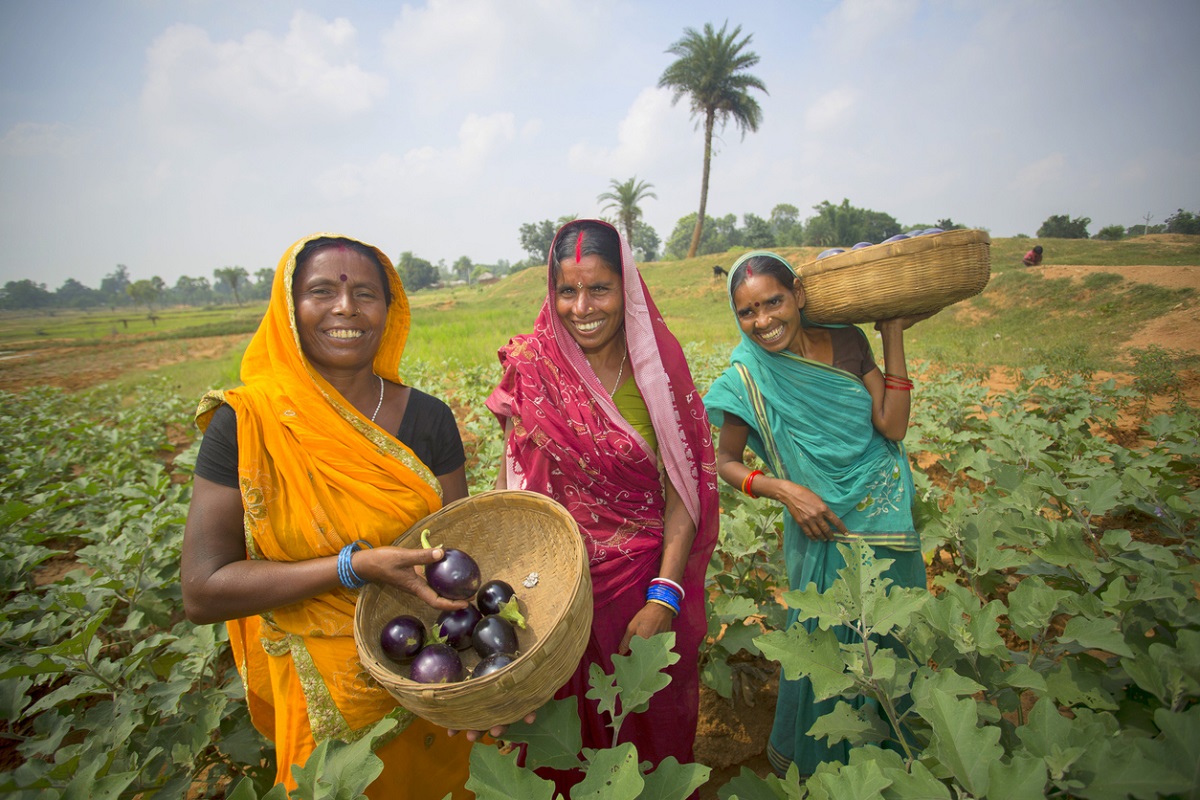
Bt Brinjal Technology Boosts Yield, Reduces Pesticides in Bangladesh, IFPRI Reports
September 25, 2019| |
Bt brinjal increased yield by 42%, reduced cost of growing brinjal by 31%, reduced pesticide applications by 51%, leading to fewer reports of pesticide exposure symptoms. These are according to the report on the Impacts of Bt Brinjal (Eggplant) Technology in Bangladesh published by the International Food Policy Research Institute (IFPRI) and the US Agency for International Development (USAID).
Brinjal is a high-value crop widely grown and consumed in Bangladesh. However, it is susceptible to fruit and shoot borer (FSB) attacks, leading farmers to use highly toxic pesticide sprays. This led the Bangladeshi scientists, together with Mahyco researchers, to develop genetically engineered brinjal varieties resistant to FSB. After 10 years of research and development, insect resistant Bt brinjal was commercially released in the country in 2013. IFPRI, under the Bangladesh Policy Research and Strategy Support Program for Food Security and Agricultural Development and with support from USAID, studied the impact of Bt brinjal in Bangladesh.
The key findings of the study are the following:
- 47% reduction in the cost of applying pesticides
- 51% reduction in the number of pesticide applications
- Net yields were 42% higher, equivalent to an increase of 3,622 kg per hectare
- 31% reduction (per kg) in the cost of growing Bt brinjal
- Bt brinjal-planting households were 10% less likely to report symptoms of pesticide exposure
Based on the results, Bt brinjal had significant positive socio-economic, environmental, and health impacts in Bangladesh.
Download the complete report from USAID.
| |
You might also like:
- IFPRI Study Says Farmers in Bangladesh Benefited by Adopting Bt Brinjal
- Pocket K No. 48: Bt Eggplant
- Brief 47: The Status of Commercialized Bt Brinjal in Bangladesh
Biotech Updates is a weekly newsletter of ISAAA, a not-for-profit organization. It is distributed for free to over 22,000 subscribers worldwide to inform them about the key developments in biosciences, especially in biotechnology. Your support will help us in our mission to feed the world with knowledge. You can help by donating as little as $10.
-
See more articles:
-
News from Around the World
- Nigeria Stresses Importance of Biotechnology for Food Security
- Study Opens Door to Flood Resistant Crops
- Scientists Discover Way to Make Crops Grow in Salty Soils
- Adoption of GE Corn, Cotton, and Soybeans in the U.S. Close to Saturation, USDA-ERS Reports
- Biologists Identify Six Genes in Maize Responsible for Production of Plant Antibiotics
- Safety Assessment of GM Crops Completed in Korea
- Bt Brinjal Technology Boosts Yield, Reduces Pesticides in Bangladesh, IFPRI Reports
- Most Complete Potato Genome Sequence Published
-
Research Highlights
- Analysis of Expression Profiles of Nuclear Factor-Y Genes in Cassava
- Hydrophobic Forces, Not H-Bonds, Bind DNA Together
-
Plant
- Engineering Broad-Spectrum Bacterial Blight Resistance in Rice Using CRISPR-Cas9
- Scientists Use CRISPR to Develop Apples Resistant to Fire Blight
-
Read the latest: - Biotech Updates (December 17, 2025)
- Gene Editing Supplement (December 17, 2025)
- Gene Drive Supplement (February 22, 2023)
-
Subscribe to BU: - Share
- Tweet

